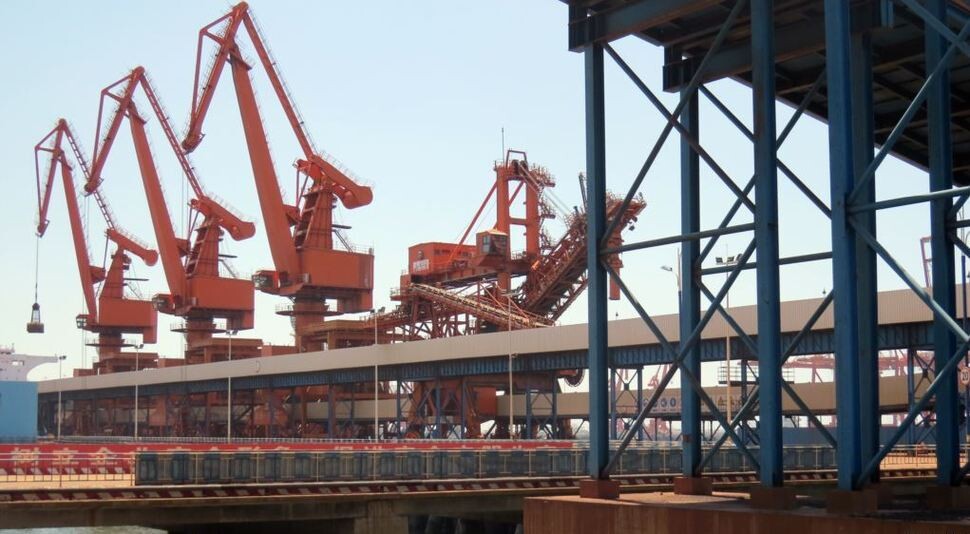hankyoreh
Links to other country sites 다른 나라 사이트 링크
Chinese government orders North Korean businesses to shut down by Jan. 8th

Chinese authorities ordered North Korean businesses within China to shut down by early January of next year. The measure, which was taken to enforce UN Security Council Resolution 2375 restricting overseas business activity by North Korea, is expected to have considerable repercussions on the North Korean economy.
The Chinese Ministry of Commerce and the State Administration for Industry and Commerce (SAIC) posted a Sept. 28 announcement on their webpages informing North Korean-Chinese partnerships, joint ventures, and foreign-owned enterprises in China that they would have to shut down within 120 days of the passage of UNSCR 2375 sanctioning North Korea.
“Businesses established with North Korea overseas by Chinese companies must likewise cease operations,” the ministry added. The 120-day deadline represents the date established in the resolution, which means that North Korean businesses will have to shut down by Jan. 8, 2018.
In the announcement, relevant authorities in China’s provinces were ordered to assume responsibility for overseeing enforcement. At the same time, it specified that the shutdown order does not apply to areas exempted in the resolution, including non-profit public operations. China classifies foreign businesses into three categories: Chinese-foreign partnerships, Chinese-foreign joint ventures, and foreign-owned companies.
The latest measure prevents business activities by all three types. While the impact of the measure will only be known over time, the ramifications are predicted to be significant, as China is North Korea’s window for external trade and virtually the only country where its companies are capable of doing business. But with dispatching of North Korean workers accounting for a large portion of the North Korean-Chinese business cooperation currently known about, the measures may end up overlapping with the resolution’s existing stipulations restricting the dispatching of such workers.
The measure is being seen as a response to the US’s threats of a secondary boycott to demand stronger pressure from China against North Korea. The announcement comes on the eve of a scheduled visit by US Secretary of State Rex Tillerson, who is arriving in China on Sept. 30 to meet with Chinese officials – including State Councilor Yang Jiechi and Foreign Minister Wang Yi – to discuss US President Donald Trump’s upcoming visit in November, North Korea-related issues, and US-China trade relations.
The Chinese government has already announced several domestic measures in connection with the UNSC resolution, including restrictions on coal imports, bans on seafood and garment imports, and restrictions on petroleum product exports. They have also faced a backlash from the industries affected. But with no domestic regulations yet announced on the restriction of worker dispatching, it remains unclear whether China is suspending the acceptance of new workers or stay extensions for existing ones.
By Kim Oi-hyun, Beijing correspondent
Please direct questions or comments to [english@hani.co.kr]

Editorial・opinion
![[Column] Has Korea, too, crossed the Rubicon on China? [Column] Has Korea, too, crossed the Rubicon on China?](https://flexible.img.hani.co.kr/flexible/normal/500/300/imgdb/original/2024/0419/9317135153409185.jpg) [Column] Has Korea, too, crossed the Rubicon on China?
[Column] Has Korea, too, crossed the Rubicon on China?![[Correspondent’s column] In Japan’s alliance with US, echoes of its past alliances with UK [Correspondent’s column] In Japan’s alliance with US, echoes of its past alliances with UK](https://flexible.img.hani.co.kr/flexible/normal/500/300/imgdb/original/2024/0419/2317135166563519.jpg) [Correspondent’s column] In Japan’s alliance with US, echoes of its past alliances with UK
[Correspondent’s column] In Japan’s alliance with US, echoes of its past alliances with UK- [Editorial] Does Yoon think the Korean public is wrong?
- [Editorial] As it bolsters its alliance with US, Japan must be accountable for past
- [Guest essay] Amending the Constitution is Yoon’s key to leaving office in public’s good graces
- [Editorial] 10 years on, lessons of Sewol tragedy must never be forgotten
- [Column] A death blow to Korea’s prosecutor politics
- [Correspondent’s column] The US and the end of Japanese pacifism
- [Guest essay] How Korea turned its trainee doctors into monsters
- [Guest essay] As someone who helped forge Seoul-Moscow ties, their status today troubles me
Most viewed articles
- 1[Column] The clock is ticking for Korea’s first lady
- 2Samsung barricades office as unionized workers strike for better conditions
- 3After 2 months of delayed, denied medical care, Koreans worry worst may be yet to come
- 4[Correspondent’s column] In Japan’s alliance with US, echoes of its past alliances with UK
- 5[Column] Has Korea, too, crossed the Rubicon on China?
- 6Hong Se-hwa, voice for tolerance whose memoir of exile touched a chord, dies at 76
- 7[Photo] Smile ambassador, you’re on camera
- 8All eyes on Xiaomi after it pulls off EV that Apple couldn’t
- 9[Guest essay] How Korea turned its trainee doctors into monsters
- 10US overtakes China as Korea’s top export market, prompting trade sanction jitters